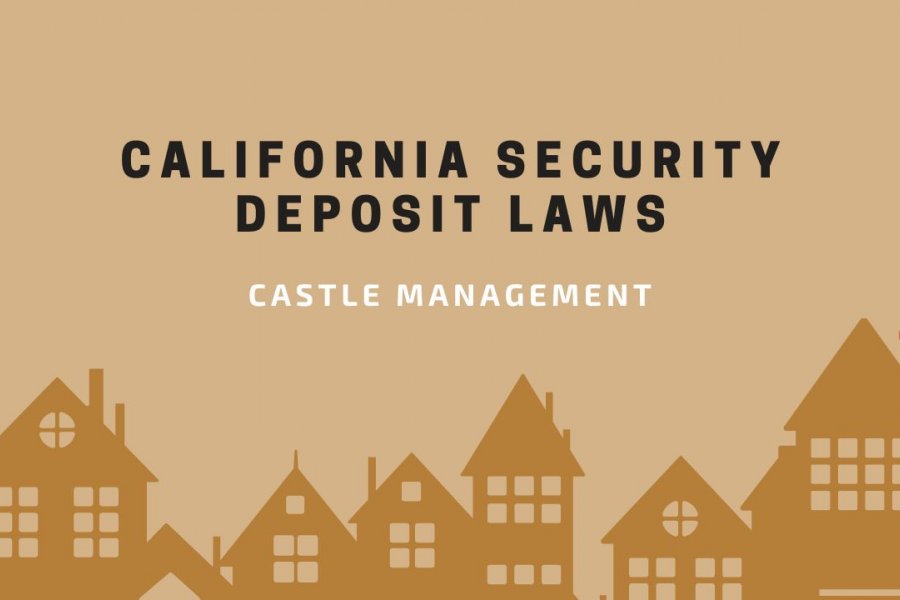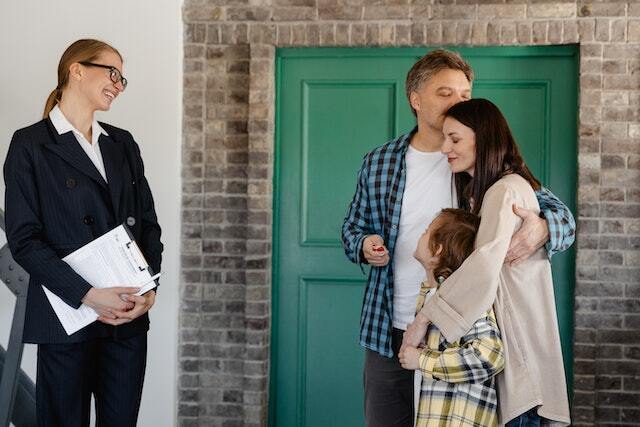
As California landlords, it's important to request a security deposit as part of the move-in process. Understanding California security deposit law, including how it relates to monthly rent as stated in the lease, can help landlords manage their properties effectively. There are lots of advantages to collecting security deposits from tenants, including helping landlords cover: lease lease lease landlord
-
Unpaid rent: One of the most common problems experienced by California landlords is unpaid rent. If your tenant fails in paying rent with money, you're entitled to deduct the payment amount from security deposits following the law.
-
Excessive cleaning costs: The California tenant is expected to return the property to the landlord with the same level of cleanliness as when they moved in. If the rent unit is not as clean as it was at the beginning of the tenancy, landlords are allowed to deduct the cleaning costs from security deposits following the law.
-
Excessive residential rental property damage: Any damage that is not considered part of normal wear and tear should be charged to the account of the tenant. In addition, any alterations made without the approval of the landlord can be deducted from the security deposit following the law.
-
Unpaid bills upon move-out: In most cases, California tenants are responsible for paying the utilities during the length of their rent agreements. However, if the tenant has unpaid utilities when they move out or are evicted, deductions from the security deposit may be used to cover these bills following the law.

California Security Deposit Law: Overview
Security Deposit Limit
A new bill was signed in October of 2023 that limits security deposits to one month's worth of rent for both furnished and unfurnished units. This new law limiting security deposits will take effect in July of 2024.
If the landlord, whether a natural person or a limited liability company, owns no more than two residential rental properties (single-family homes or condos) and no more than four units total, they are still allowed to charge up to two months’ rent as the security deposit.
The bill was passed to improve housing affordability in San Francisco and nearby cities, so now the maximum security deposit you can charge, can't be more than one month's rent for both furnished and unfurnished units. To stay compliant with these changes, landlords must update their security deposit collection practices.
This bill aligns with updated regulations to ensure fair practices and will help tenants comply with new regulations, making rental costs more manageable and equitable.
Important Exceptions
While the new regulations are designed to be comprehensive, there are some exceptions that may apply depending on the specific circumstances of each case.
-
Active service members: One exception is if the California renter is an active member of the military. Landlords may only charge a security deposit equivalent to one month of rent for unfurnished homes and two months of rent for furnished rental units according the law.
-
Pet deposit: Another exception under the California law, landlords are allowed to require that their tenants pay an additional pet deposit. However, tenants with disabilities can not be required by landlords to pay additional pet deposits if their pets are used as service or emotional support animals, so this exception is limited.
-
Mobile home space: Another exception is for California mobile homes as the maximum limit for a security deposit is equivalent to one month's worth of rent following the law.
Nonrefundable Fees
The state of California does not allow landlords to charge nonrefundable fees. The entire security deposit, whether for furnished or unfurnished rentals, should be returned to the renters when the lease term ends. State security deposit law clearly prohibits landlords from drafting a rental agreement stating that there are nonrefundable deposits.

Storing a Tenant's Deposit
In some states, there are rules about how you should safely keep the security deposit. For instance, in Florida, a landlord can choose to post a surety bond for the amount of the security deposit or keep the deposit in an interest-bearing or non-interest-bearing bank account. This applies whether the rental is furnished or unfurnished.
However, in California, there is no specific statute that landlords must follow when it comes to keeping a tenant's security deposit for furnished or unfurnished homes.
Written Notice after Security Deposit Receipt
Under California landlord-tenant law, landlords are not required to provide written notice to the tenants regarding the receipt of the security deposit.
Reasons to Withhold a Tenant's Security Deposit
Landlords in California can keep all or a portion of a renter's security deposit under certain conditions. In the state of California, you can use a security deposit:
-
To compensate for unpaid rent.
-
To cover the cost of repairs due to damages past normal wear and tear caused by the tenants.
-
To pay for the cleaning costs if the rental unit is not as clean as it was during the start of the tenancy.
-
To replace damaged or lost furniture and to restore the unit in accordance with the provisions of the rental agreement.

Keep in mind that, in accordance with California's renters' rights concerning security deposits and to avoid security deposit disputes, landlords cannot keep the deposit to cover conditions that existed before the tenant moved into the rental unit.
A Walk-Through Inspection
A walk-through inspection is required under California landlord-tenant law. The inspection helps to check the property's condition so landlords can give the tenant a chance to remedy identified deficiencies.
The landlord should inform the tenant about the inspection within a reasonable time. The inspection should not be scheduled for earlier than two weeks before the end of the lease or rental agreement.
Security Deposit Refund in California
Landlords have 21 days to return all or part of the tenant's security deposit after the tenant moves out of the residential property. If there are any deductions, you must provide a written, itemized statement of deductions upon the security deposit return. If any disputes arise between the landlord and tenant, security deposit issues are handled in small claims court.
Change in Property Ownership
If the landlord sells or transfers the ownership of the rental property before the lease term ends, the outgoing landlord has the following options:
-
The landlord may return the one month's rent deposit to the tenant just as he would when the rental agreement ends, less any eligible deductions, listed in an itemized statement. The outgoing landlord must notify the new landlord that the deposit was returned to the tenant.
-
The landlord may transfer the one month's rent security deposit to the new owner. The outgoing landlord is required to notify the tenant in writing about the transfer of the security deposit. The landlord should also state the name and contact address of the new owner in the notice.

Conclusion
If you have specific questions about the security deposit law, including the changes related to the one month's rent new rule, it's best to hire the services of a qualified attorney. Alternatively, you can also seek help from a knowledgeable rent property management company. If you're looking for a rental property manager in California, reach out to Castle Companies at (925) 328-1240 and we'll be happy to serve you.
Disclaimer: This blog should not be used as a substitute for legal advice from a licensed attorney in your state. Laws change, and this post might not be updated at the time of your reading. Please contact us for any questions you have in regards to this content or any other aspect of your rental management needs.
